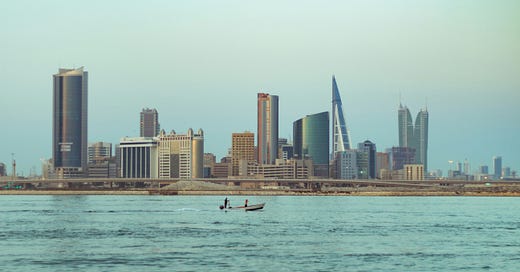A good exit in MENA is a $200-300 million valuation: Plus VC’s Hasan Haider
The former 500 Falcons partner stresses discipline when investing in the region
Putting your money into emerging markets (EM) is high risk as it is. Doing that in the VC asset class makes it doubly and triply risky, especially at a time of an institutional flight to quality. While India and Southeast Asia investors are getting a reality check on the myth of power law dynamics in EMs, Middle Eastern investors like Hasan Haider are leaning towards more modest outcomes.
“A good exit is a $200-300 million dollar valuation, right? I think an exceptional exit is a billion dollars. I’m not even thinking of anything above…for the companies I’m investing in because they’re just so rare and the market just doesn't have the funding to get companies to those levels yet,” said Hasan Haider, managing partner at Plus VC on The Upside Podcast.
The Bahraini-based seed investor further emphasised the need to stay disciplined on valuations – something which can be hard to do when you’re investing in a market which is very nascent and oftentimes, frothy. It’s admittedly still early days, says Haider, but there are hidden gems as long as you’re not into chasing trends, be it Buy Now Pay Later (BNPL) or more recently, AI.
Some of Plus VC’s portfolio companies include UAE’s Ovasave which focuses on reproductive and fertility health for women; and Tunisia’s Mare Custos which operates a robot-as-a-service fleet of subsea drones for underwater cable inspections.
VC fundraising in the Gulf isn’t exactly easy, despite the presence of several oil-rich sovereigns sitting at their door. Middle East fund managers have previously expressed concern that if oil prices remain below breakeven point, many sovereign LPs may be even more reluctant to re-commit into the region. The likes of Saudi’s PIF, Abu Dhabi’s Mubadala and Qatar’s QIA still prefer to allocate to markets like the US and Europe.
“Yeah, I don’t think that's going to change. The majority of funding is continuing to go outside the region. That's just the reality of where we are. But when it comes to the region, I'm just happy that they are providing some capital (here). A lot of the funds have ignored this region completely,” said Hasan.
While there has been a flock of global fund managers setting up shop in the Gulf in recent times, this has not translated into a flurry of growth-stage cheques for MENA’s startups. Not yet anyway.
Clearworld’s latest report shows that the number of Series A startups in MENA remained virtually the same in 2024 and 2025. If this continues, as much of 30% of these startups may have to be written off in 2026.
The flipside to this is that MENA’s early-stage startups will have to get smarter about monetisation and will likely be forced to hit their profitability targets earlier than expected, he added.





